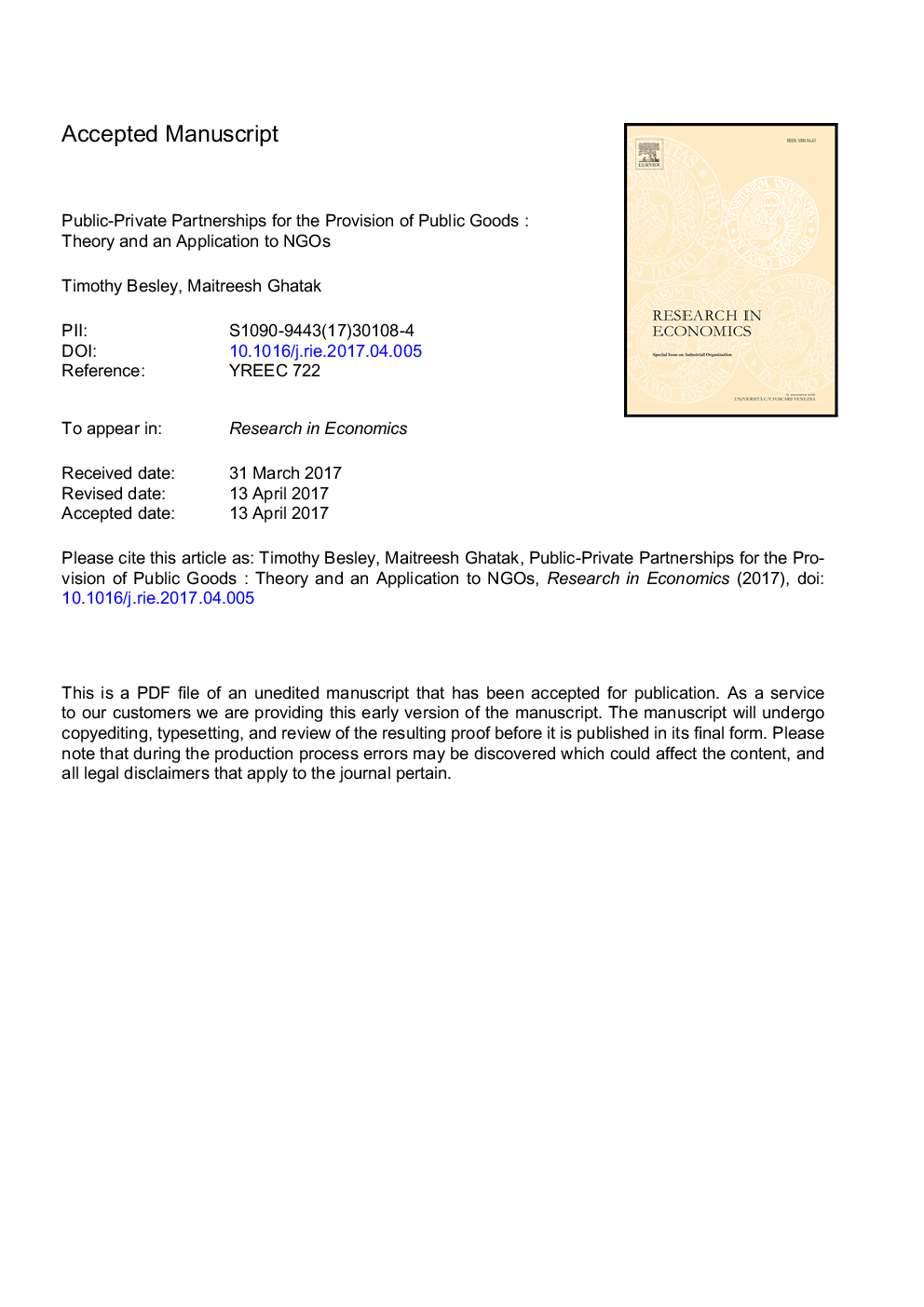| Article ID | Journal | Published Year | Pages | File Type |
|---|---|---|---|---|
| 5103776 | Research in Economics | 2017 | 39 Pages |
Abstract
When will a public good or service be provided by the government, when will it be provided by a NGO, and when will we see a private-public partnership? This paper provides a model where a typical public good requires different inputs which raises the possibility of partnerships to exploit comparative advantages of different parties. But hold-up problems due to contractual incompleteness in specifying tasks discourage separation of ownership and management. The fact that public goods have the property of non-rivalry and non-excludability and that NGOs tend to be non-profits drives our key results. We apply the framework to NGOs in developing countries which, in the last few decades, have been increasingly involved in various capacities in the provision of a wide range of public goods and services.
Related Topics
Social Sciences and Humanities
Economics, Econometrics and Finance
Economics and Econometrics
Authors
Timothy Besley, Maitreesh Ghatak,
